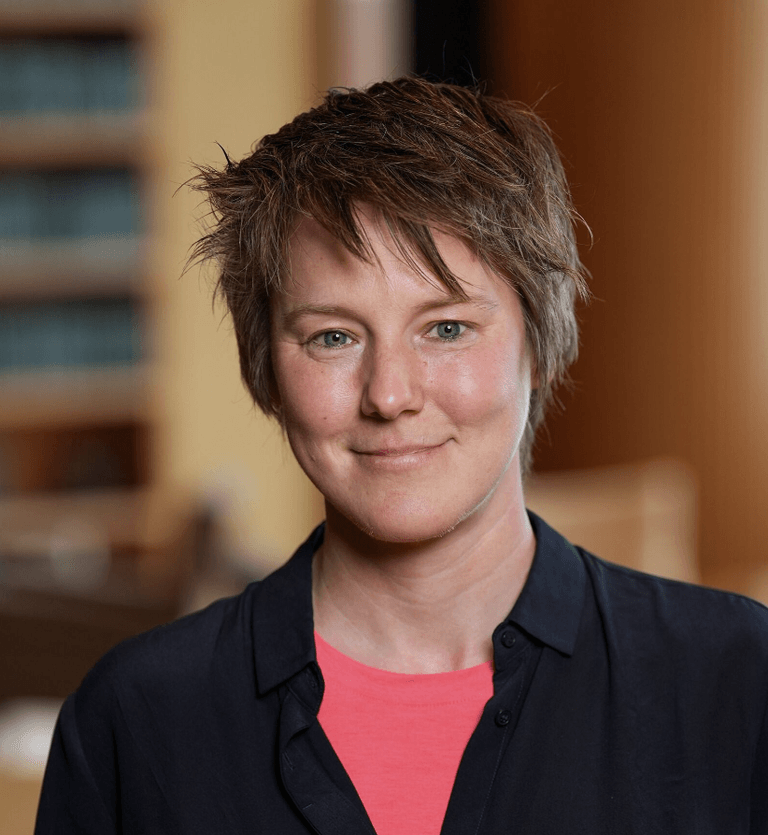Friederike Benning
B.S., Interdisciplinary Sciences: Biochemistry and Physics, ETH Zurich, Zurich
M.S., Interdisciplinary Sciences: Biology and Chemistry, ETH Zurich, Zurich
Ph.D., Structural Biology and Biophysics, Biozentrum, University of Basel

Here, I feel like an astronaut of the cell—I get to explore this new universe, asking questions no one’s asked before.
Friederike's Profile
Research Areas
Molecular and Cell Biology, Evolutionary Biology, Biochemistry, Microbiology
Honors
2023
Keystone Symposia Future of Science Fund Scholarship
2019
Helmsley Charitable Trust Fellowship
2018-2020
Swiss National Science Foundation Postdoc Fellowship
2013-2016
Werner-Siemens Foundation Graduate Fellowship
2007-2012
German Academic Scholarship Foundation (Studienstiftung des deutschen Volkes)
Friederike Benning, Ph.D., is a molecular biologist, biochemist, and structural biologist who will join the Stowers Institute in Fall 2025 as the newest Jim and Virginia Stowers Fellow. Her research investigates the diversity and evolution of bacterial membrane structures—focusing on how specialized folds enable bacteria to adapt to extreme environments and how these insights might one day be used to build synthetic cellular systems.
Benning joins the Institute from Harvard University and Massachusetts General Hospital. Her work will focus on a group of ancient bacteria called Alphaproteobacteria, which are believed to be the evolutionary ancestors of mitochondria—the energy-producing organelles in human cells. These bacteria thrive in some of Earth’s most challenging environments, such as volcanic vents and oceanic sediments, thanks to their uniquely folded internal membranes.
“There’s an entire universe of membrane shapes out there—many still unknown,” said Benning. “By studying how these bacteria survive and adapt, we can uncover clues about the origin of complex life and apply those principles to design artificial cells.”
Benning’s scientific path reflects her deep interest in the molecular machines that shape cellular life. During her Ph.D. training, she helped developed a new method to directly film large metabolic enzymes in action, revealing how different parts of the enzyme move in coordination during energy production. The findings advanced understanding of how complex enzymes operate at the nanoscale.
During her postdoctoral research, she produced a high-resolution 3D reconstruction of a virus particle using cryo-electron microscopy, solving a decades-old mystery about how the virus assembles. In her most recent work, she used evolutionary biochemistry to uncover how a key mitochondrial protein helps maintain the structure of inner membrane folds—an essential feature for the cell’s ability to generate energy.
At the Institute, the Benning Lab will study how membrane folds form in hard-to-culture bacteria and how those principles can inform the development of customized vesicles for drug delivery and biological tools. She is particularly interested in bridging the gap between single-celled microbes and the emergence of complex, energy-efficient eukaryotic cells—and using those natural design strategies to solve modern challenges in medicine, energy, and synthetic biology.
